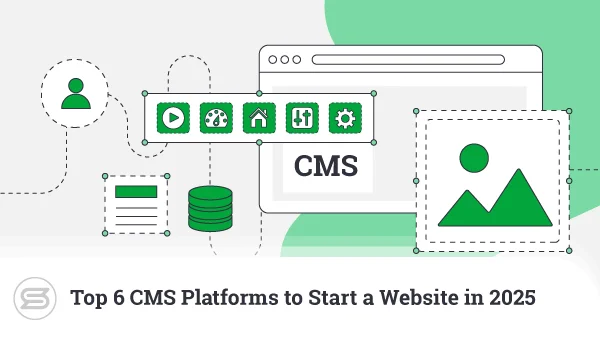Tips to Improve Your Web Hosting Customer Service
What does the client want? Every marketing specialist, business owner, and account manager tries to find the answer to that sacred question. After all, your business exists because of its clients.
Strangely enough, proper customer service in web hosting is still hard to find nowadays, as many hosts focus on other aspects of their business. Our mission today is to empower the whole industry to do better…
Why is Customer Service so Important?
With hosting services on the constant rise, more and more people are looking for a place to house their web projects. On the other hand, you have thousands of hosts, all fighting for the same clients. Keep in mind that becoming a host is relatively easy – all you need is a web server, some software licenses, and enough knowledge to run the infrastructure.
But what happens when your new clients need assistance?
There is more than one reason to ensure first-class support to your users:
- Online reputation – your support team is often the first impression visitors get of your company and brand. Great services will inevitably bring results in the form of positive online comments, reviews, and recommendations.
- Brand loyalty – a happy customer remains a loyal customer. Even if a user finds a better-looking deal offered by a competitor, they will be more inclined to stay with you because you have a proven track record.
- Competitive advantage – many hosting providers still neglect the importance of excellent customer service, so you have a relatively easy chance to shine brighter and attract more users in the process.
This brings us to the actionable tips when it comes to satisfying your hosting clients.
How to Improve Your Web Hosting Customer Service
There are no magical secrets behind impeccable client services. In fact, putting yourself in the client’s shoes is often the best strategy.
Rule 1 – Always be available
It doesn’t matter if it’s on the phone, on e-mail, or social networks. If you give your clients many ways to contact you – be responsive in all of them. Look to provide useful replies as fast as possible – this will make the user feel special and with high priority.
Rule 2 – Be honest
Everyone appreciates honesty, and that rings especially true in web hosting. Make good on your promises and avoid hiding important details in the fine print, as many industry competitors do. If you see the potential client is not technically versed – try to explain your offer in the most comprehensive way to make them feel more comfortable.
Rule 3 – Don’t belittle the problem
As a hosting provider, you probably have long experience in the industry, so it’s natural you find some cases much easier to resolve than others. Remember there are no stupid questions when it comes to the client, though. Instead of belittling their problem, try to solve each issue patiently and with enough care.
Rule 4 – Give more than expected
Answering quickly and politely is just the first step towards perfect customer service. You have to go the extra mile to stand out from the crowd. Don’t just inform the user their issue is solved – you can this into a teachable moment and share some valuable know-how. Even more – giving some quick tips on how to improve website speed or harden security can really assure clients they’ve come to the right place.
Rule 5 – Invest in your staff
Each of your team members should reflect your customer service goals. Initial trainings are great but don’t just stop there. Regularly engage your staff with presentations, extra courses, and events where they can improve their professional qualification. Confident industry experts inspire much more trust in potential clients.
ScalaHosting Customer Service
At ScalaHosting, we have always believed in leading by example. Our customer service team is available 24/7 by email and ticketing, as well as Mon-Fri, from 2 am to 5 pm (GMT -6) via phone and live chat.
According to our internal statistics from the last year, the ScalaHosting support has been more responsive than ever:
- Email and Tickets – within 10-20 min
- Live Chat – within 1 min
- Social Media – within 24 hours
At the end of the day, it’s you, the clients, who drive us forward. We are very thankful for your positive reviews (4.9/5 in TrustPilot and 9.5/10 in HostAdvice), but always welcome constructive criticism and recommendations as well.
Whether you are an existing client or a new user looking for a potential host – we’ll always be happy to hear from you and do our best to help out. Simply contact us and share more details about your case.


Conclusion
As you can see, improving your web hosting customer service is not a question of If, but a matter of When. And the simple answer is – right now. Understanding and serving your potential and existing clients better will inevitably bring you sustainable, long-term benefits. It’s quite simple, really – make sure to support enough communication channels, be swift and professional, treat each case with the utmost importance.
Start building a stellar online reputation today!
FAQ
Q: What is web hosting support?
A: Your web hosting provider ensures the server infrastructure and safe environment for your website. The host is responsible for keeping your website online and running smoothly. Along the way, the support team can assist with any account and server-related technical issues.
Development requests and support for third-party products are typically not covered by your web hosting support.
Q: How much does web hosting support cost?
A: The support services are an integral part of any shared hosting plan or managed server solution. As such, they come at no added cost to the end user.
Still, you can always go for specialized third-party assistance or opt-in for premium support with your host. Prices can greatly vary depending on the type of service and support coverage.
Q: What web hosting support channels are there?
A: Covering the needs of different types of customers is one of the first steps when it comes to excellent support. Hosts are becoming more and more inventive in their communication channels – live chat, email, phone, internal ticketing, social media. Some even go as far as covering messengers like Skype and Viber.
Whatever channels you decide to offer – make sure to be swift and responsive in each one of them.



